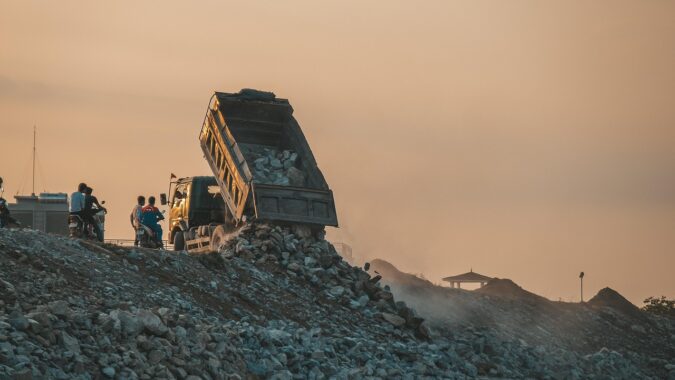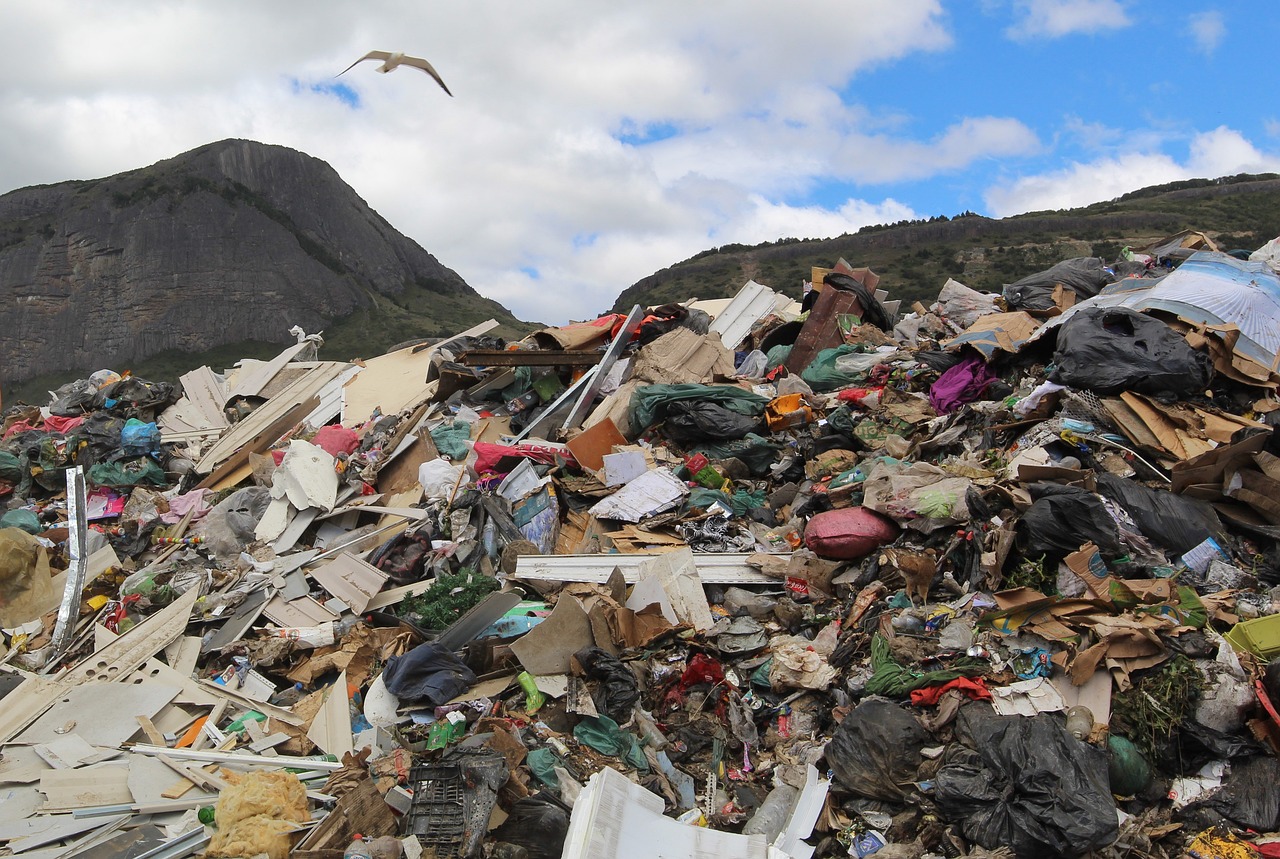
Why is Landfill Bad?
Landfill is bad as it contributes to many environmental and health problems. Much of the rubbish thrown away in landfill sites takes many years to break down. As waste decomposes in landfill it can release toxins and create leachate that pollutes land, ground, and water. Landfill also releases the greenhouse gas methane.
These problems with landfill can all have negative effects on the local environment and the health of people and wildlife who live in the nearby area. There are huge financial costs associated with landfill sites for councils, governments, businesses, and taxpayers. It’s also a long-term issue, as waste can take hundreds of years to break down, passing on the problems of landfill to future generations.
Understand why landfill is bad for the environment, the problems with it as a destination for waste, and discover sustainable solutions and alternatives.
Get a free quote
Get a FREE quote for your waste collection
- Free quote within 1 hr
- Any type of waste
- FREE bins and delivery
- We cover all of the UK
Landfill statistics
These UK landfill statistics provide a quick insight into the problems of landfill and why it’s such a big issue for waste management. Here are some shocking landfill stats:
- There are around 500 landfill sites in the UK
- About 35 million tonnes of waste are in UK landfill sites
- 8 million tonnes of UK biodegradable municipal waste (BMW) were sent to landfill in 2021
- England generated 3 million tonnes and was responsible for 79% of UK biodegradable municipal waste to landfill
- Landfill is the second most used waste treatment in the UK – after ‘recycling and other recovery’ – as 6% of waste was disposed of at landfill in 2018. Recycling and recovery accounts for 50.4% of waste disposal.
- It takes waste many years to decompose and biodegrade in landfill based on the material:
- Paper – two to six weeks
- Food waste – six to two years
- Plastic bags – 10 to 100 years
- Aluminium cans – 80 to 200 years
- Disposable nappies – around 450 years
- Plastic bottles – about 450 years
- Glass – up to one million years
- The main components of landfilled waste are soils (58%), household and similar wastes (10%), mineral wastes (6%), and other wastes (26%).
- Recycling rubbish rather than sending it to landfill saves over 18 million tonnes of CO² per year in the UK.

What happens in landfill?
Modern landfill sites work by completely sealing in the waste to minimise the risk of contaminating nearby ground, water, and air. The general process is:
- The ground of the landfill site is lined with clay with a thin layer of flexible plastic placed on top.
- Waste is dropped into the landfill hole and compacted into a solid mound.
- A layer of soil is added on top of the waste every day to reduce the bad smell and ward off pests.
- Leachate – the liquid that passes through landfill – seeps down and onto the plastic layer. It’s collected in a drainage system that passes it through pipes and into a pool where it’s treated to remove toxins.
- Once the landfill is full it’s sealed at the top with another layer of clay and thin plastic. Then it’s covered with soil to allow plant growth on top.
- Modern landfill sites have pipes in place to collect any methane produced so it can be vented, burned, or used to generate energy.
Landfills are designed to store waste, not to break it down. As they’re sealed shut with a lack of oxygen this slows any decomposition of waste. This is done on purpose to prevent the landfill system from sinking and becoming unstable. However, as waste sits in landfill for many years it does decompose – just very slowly.
As waste sits in landfill the chemical bonds holding materials together start to disintegrate as they break down into simpler substances. The temperature, moisture, and a lack of oxygen create anaerobic conditions. This leads to a bacterial reaction and methane-producing bacteria that slowly decompose the waste while producing methane gas.
What are the problems with
burying waste in landfill sites?
Burying waste creates many landfill problems that affect the environment and human health, and create broader social issues. The negative impact of landfill has been known for many years with alternative solutions developed to reduce our reliance on these sites. Landfill issues still exist though. The main problems with burying waste in landfill sites are:
- Methane from landfill – the anaerobic process that breaks down waste in landfill produces methane, which is between 25 and 34 times more potent than carbon dioxide. Landfill sites are responsible for about 25% of all methane emissions in the UK. Methane is a greenhouse gas that absorbs heat and significantly contributes to global warming and climate change if it’s not controlled.
- Release of toxins – lots of waste that ends up in landfill can contain toxic substances, which leach into the ground and can even reach nearby water sources. Most waste containing toxic substances should be recycled or disposed of via different streams to control the toxins and avoid hazardous substances ending up in landfill. This includes electronic items (WEEE waste), certain types of plastic waste, mercury, and other hazardous waste.
- Leachate – water filters through the waste in landfill and collects toxins and decomposed waste components on its way. This produces the toxic leachate liquid that may contain methane, carbon dioxide, organic acids, alcohols, and more. If it’s not controlled or treated this can contaminate the local ground and water, harming the environment, wildlife, and any humans in contact with it.
- Negative health effects – landfills create and release other gases such as ammonia and hydrogen sulphide. Exposure to these can contribute to health issues such as coughing and nausea to serious complications including asthma, respiratory problems, and even lung cancer. Research has shown those living close to landfill sites are at higher risk of developing such health problems. Accidents can also occur at landfill sites if there are landslides or collapses.
- Social impact – landfill sites are unpleasant places. They can release terrible smells, be incredibly noisy, and be something of an eyesore that negatively affects the living standards of those nearby. This can reduce local property prices and contribute to social deprivation in the area.
- Fires and explosions – methane is highly flammable. It can cause explosions and fires inside landfill that release harmful dioxin emissions that damage the environment. If any fires spread they can also put humans, wildlife, and properties at risk in the surrounding areas.

Are there any
advantages of landfill?
There are many disadvantages of landfill and where possible they should be avoided. Recycling, recovery, and responsible disposal of waste is the best method to protect the environment and human health. However, developments and changes to modern landfill sites mean a few advantages of landfill do exist:
- Energy source – many modern landfill sites capture the methane and carbon monoxide they produce. This avoids releasing it into the environment and it can be used productively to generate energy.
- Cheap solution – sending waste to landfill can be inexpensive due to the large amounts of waste they can take and shorter distances, as most towns and cities have at least one nearby. However, businesses must pay landfill tax.
- Job opportunities – landfill sites employ many people and are significant work sources for people in less economically developed countries.
Explore alternatives to landfill
The issues with landfill for the environment and human health mean alternative solutions for waste disposal are vital. At Business Waste we provide alternatives to landfill where possible when collecting and disposing of all types of commercial waste – from cardboard recycling to general waste.
Various alternatives to landfill are available with the best method depending on the specific waste type. These include options such as recycling, reuse, anaerobic digestion, industrial composting, incineration to create refuse-derived fuel (RDF), and more. Our expert team can advise and tell you more about the disposal method for your waste.
Speak to one of our team and get a free no obligation quote for your waste collection and disposal. We avoid sending your commercial waste to landfill and can explain how it will be disposed of. You also receive a free duty of care certificate that details its disposal method for added peace of mind.
Call 0800 211 8390 or contact us online for your free quote for any type and amount of waste collection anywhere in the UK today.
Get a fast and free quote
Get a fast FREE quote for your business waste collections
- Free quote within 1 hr
- Any type of waste
- FREE bins and delivery
- We cover all of the UK